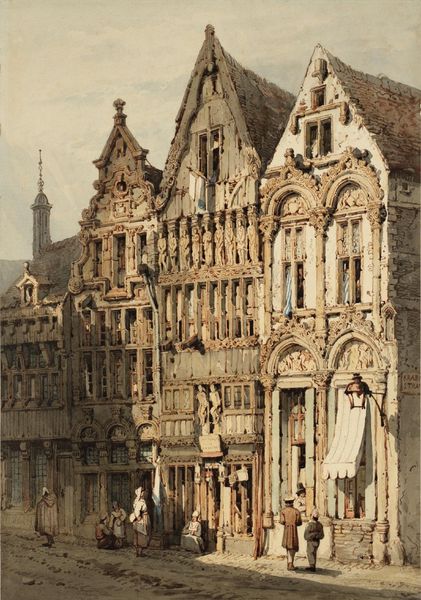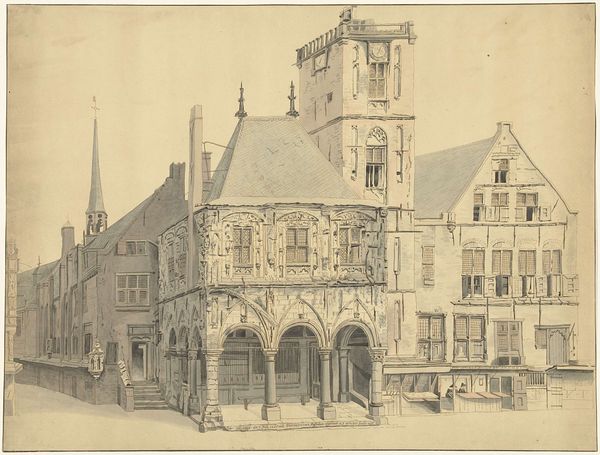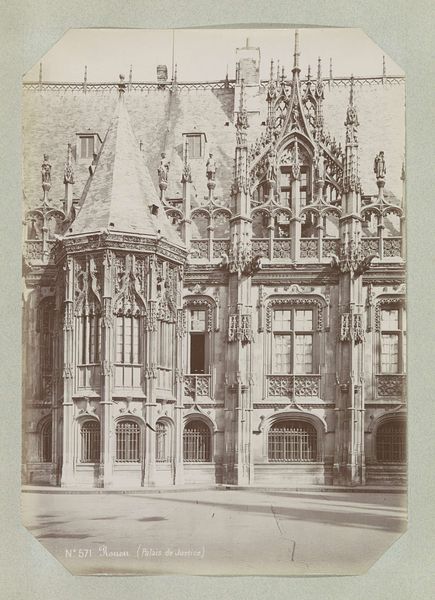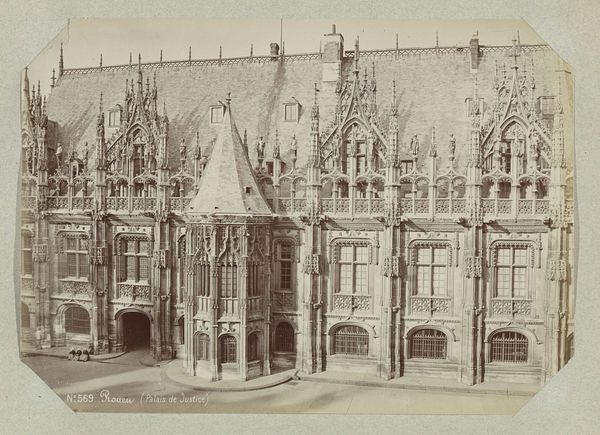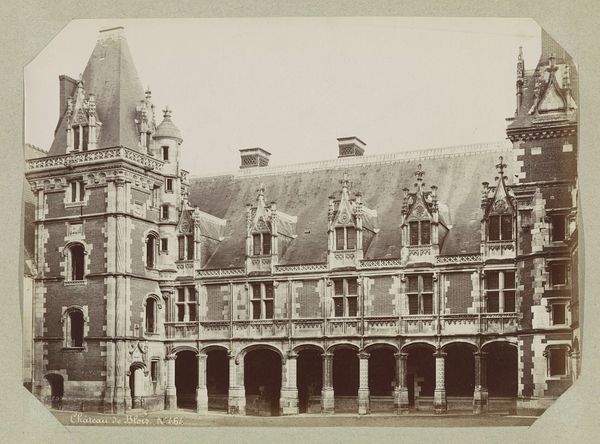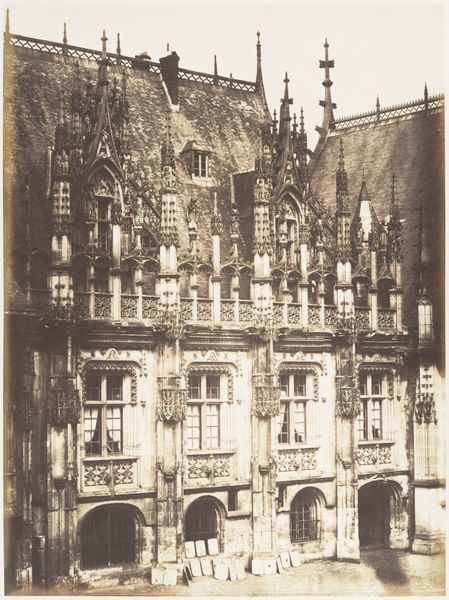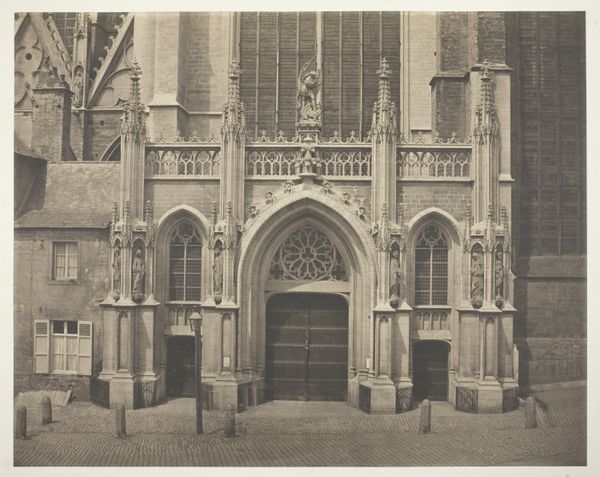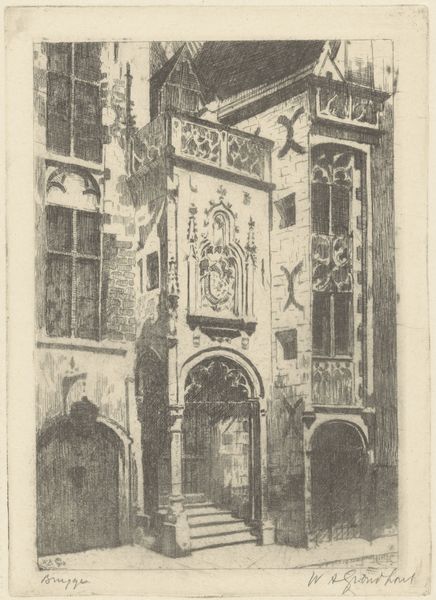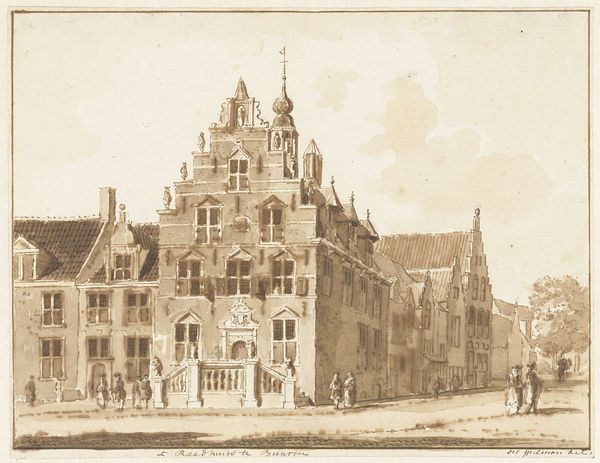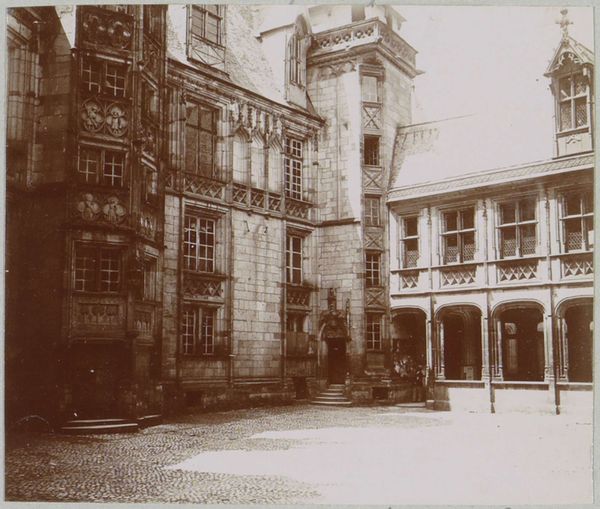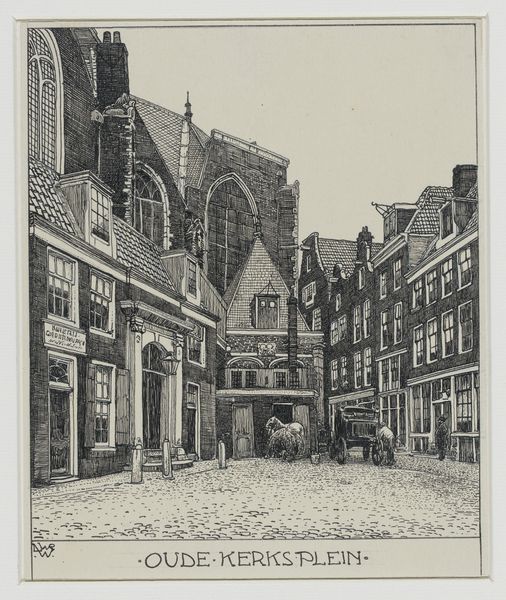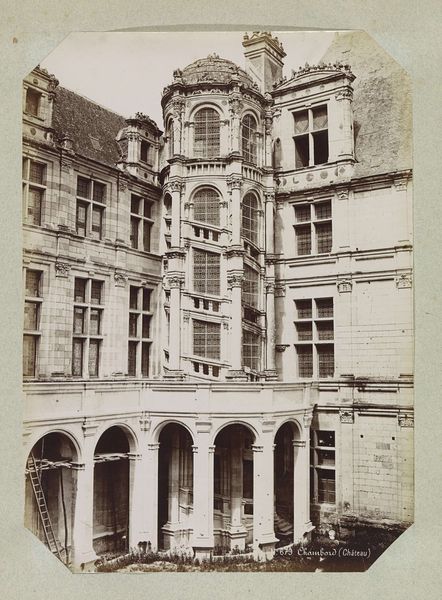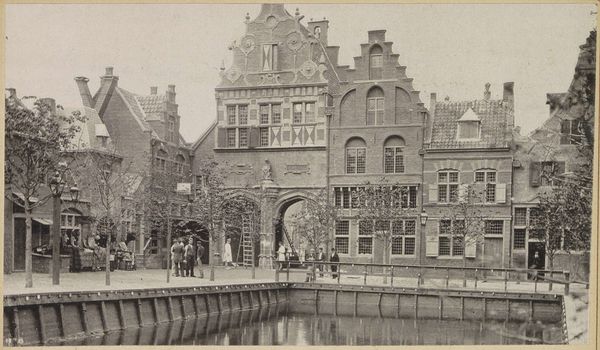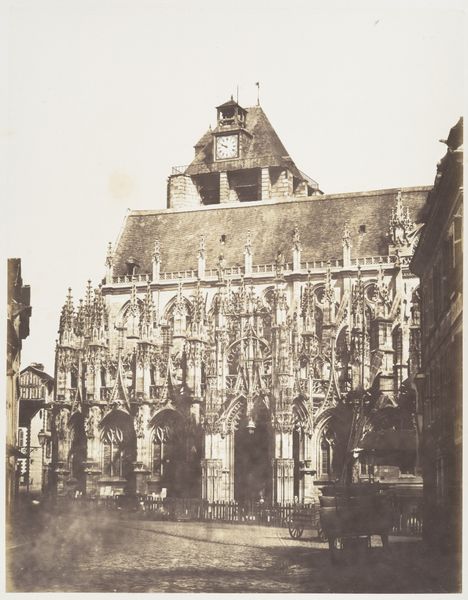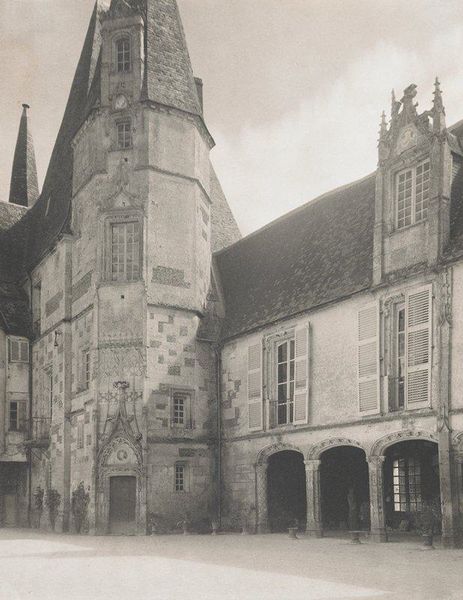
carving, sculpture, architecture
#
medieval
#
carving
#
urban
#
building
#
street view
#
house
#
urban cityscape
#
historic architecture
#
romanesque
#
sculpture
#
urban life
#
urban art
#
arch
#
text in urban environment
#
city culture
#
architecture
#
historical building
#
building
Copyright: Public domain
The Basilica of the Holy Blood in Bruges, Belgium, stands as a testament to Romanesque architecture, crafted between approximately 1000 and 1250 AD. The Basilica's stone facade initially presents a study in muted greys, yet a closer look reveals intricate carvings and gilded statues that punctuate the surface, creating a play of light and shadow which evokes a sense of awe. The structure is divided horizontally into distinct registers, each marked by variations in fenestration and ornamentation. This division suggests a hierarchy, with the more ornate lower levels giving way to simpler forms above. Golden figures stand as intermediaries, poised between the earthly and the divine, their color rendering them as signs, elevating the space to a higher realm. The architectural elements—arches, columns, and relief sculptures—function as signs within a semiotic system, communicating stories, values, and beliefs. The Basilica’s design does not merely enclose a space but articulates a discourse, inviting interpretation and reflection. Its enduring presence reminds us that architecture, like any art form, continuously generates meaning across time.
Comments
No comments
Be the first to comment and join the conversation on the ultimate creative platform.
